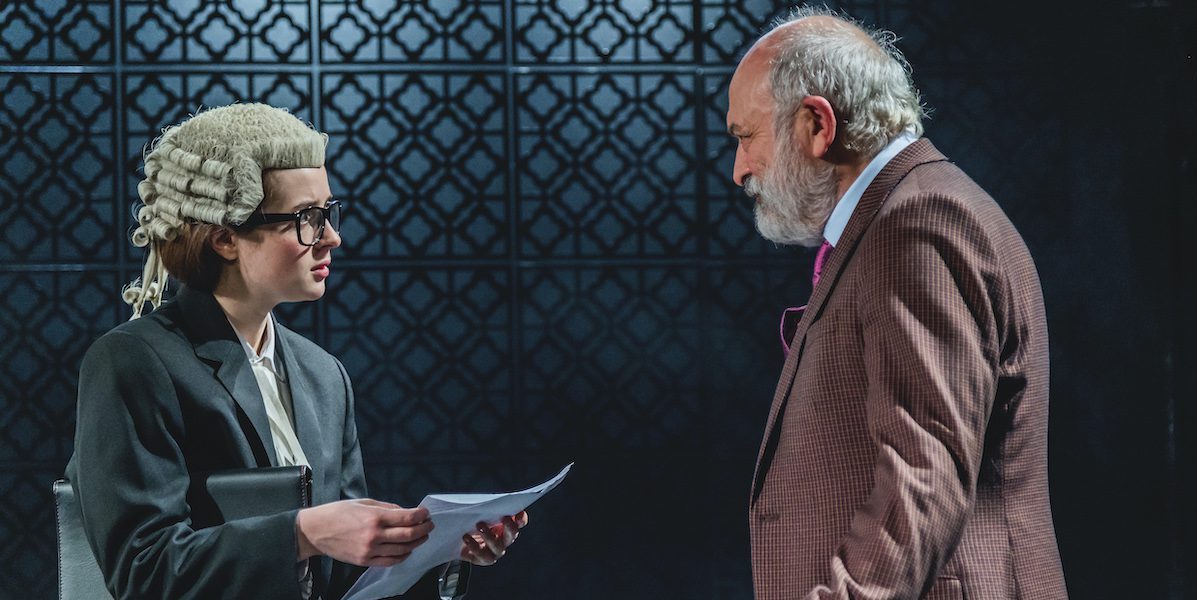Headline: What is Love?
I should say immediately that this production is one that you should see now before it sells out. Unlike so many contemporary interpretations of Shakespeare, that are marked by a mumbling and jumbling of the text, this is clearly spoken and expertly distilled to reflect one key theme: Love. What is love? Why do we love some people but not others? Do we love what is on the surface or what is in someone’s character? And how do we deal with the loss of a loved one?
All of these questions are touched on in this production and the virtue of having a strong well-directed cast is that it liberates the audience to feel the immense emotional power of the words themselves. Lena Robin (as Portia) and Alexander Knox (as Bassanio) highlight the elusive nature of love as they negotiate her father’s challenge to see past the appeal of glittering gold to appreciate the substance of lead – and yet the first thing Bassanio does after his successful choice is to focus on Portia’s beauty. Lean Robin is an excellent Portia – beautiful yet not vain, cool, organised and intellectually methodical. This coolness pays off when she appears later as the lawyer Balthasar and calmly skewers Shylock (Peter Tate) by remorselessly applying his own logic to find a reason not to honour his bond. Gratiano is played as a very believable ‘good-time guy’ by Alex Wilson; we like him: which makes his malicious delight at Shylock’s fall both memorable and disturbing.
The focus on the text also helps us hear and feel Antonio’s (John McAndrew) profound dislocation as his friend finds another type of love with a woman; we hear and feel Bassanio’s dilemma when his love for Antonio leads him to part with Portia’s ring; and we hear and feel how Shylock’s heart is broken when he receives the news that his daughter has exchanged – for a monkey – the turquoise ring that he was given by his wife Leah when he was a bachelor: as he says, he ‘would not have given it for a wilderness of monkeys’. And in the final seconds there is a touching moment when Solania (Mary Chater) looks longingly at Antonio, suggesting an unrequited love of which Antonio remains blissfully unaware.
I should also say that design of the set and costumes (Sara Perks) is exemplary; the muted colour palette and the costume design give a sense of a place that values tradition, but one that Shylock, despite dressing in a similar way to the ‘Christians’ can never join.
Of course, the textual edits mean that certain characters are never seen (although Jessica’s presence is heard via her mocking off-stage laughter), but the cohesion of Alexander’s vision and the clear delivery of the lines makes up for a wilderness of more comprehensive yet more confused Shakespeare productions currently doing the rounds.

